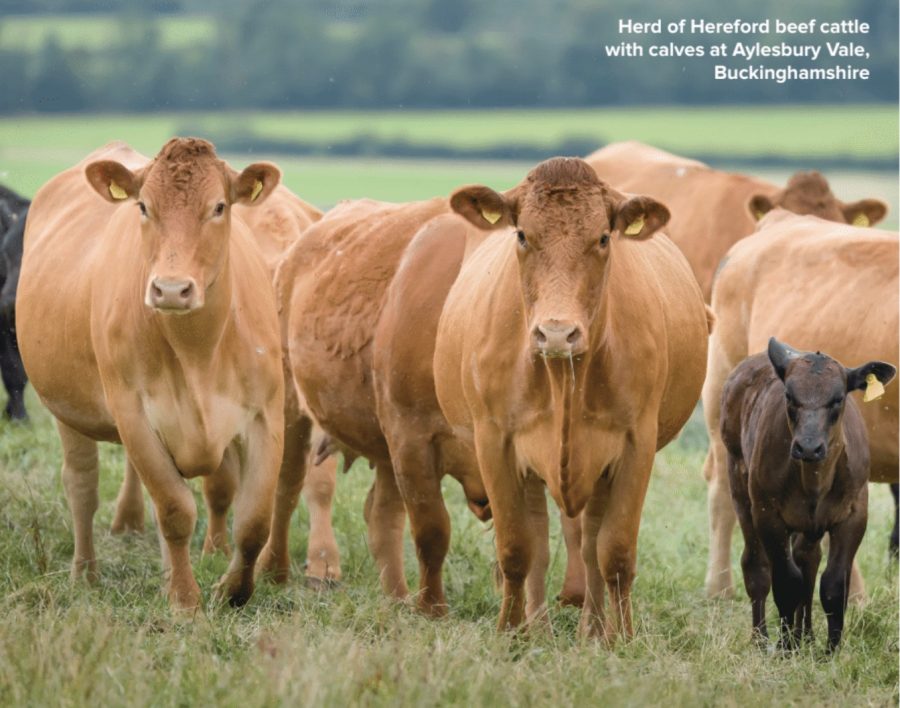Tonia Simms of Hampden Farm Vets, part of the VetPartners group, explains what the new rules around medicine prescriptions mean for your herd.
In September 2023, the rules for prescribing medicines were changed by the Royal College of Veterinary Surgeons (RCVS). This isn’t a ban: you can still treat your cows with antibiotics, but prescriptions are now animal specific and there are tighter rules on what can be prescribed and when. The rules are as follows:
- The vet needs to have seen the animal, OR
- The vet needs to have thorough knowledge of the farm, system, and environment, AND
- The vet needs to have been on farm within a reasonable length of time of which many practices have set as six months for general veterinary therapeutics.
- Diagnoses by a herd or stockperson cannot be accepted as a reason to prescribe.
WHY HAVE THE RULES CHANGED?
Responsible use of antibiotics is of paramount importance due to the global issue of microbial resistance to these chemicals in both animal and human health. Every year industry antimicrobial use targets are set by the Responsible use of Medicines in Agriculture Alliance (RUMA). To allow us to meet these targets, a key responsibility of us as vets is to use antibiotics in a way that safeguards their future as effective drugs for both animals and humans. This is done by:
- Prescribing the correct antibiotic for the disease
- Completing the full course
- Treating with the correct dose
- Following the withdrawal period for meat, eggs, and milk
- Preventative methods to reduce the need to use antibiotics
WHAT HAPPENS IF YOU DON’T SEE YOUR VET ROUTINELY?
To be prescribed antibiotics, your cows will need to have been seen by the vet within that ‘reasonable length of time’. A six monthly check-in with your vet is a good opportunity to look at the overall health of your herd and discuss endemic disease risks. There are schemes already available that will provide this information for your vet:
- If you are farm-assured, you will already have a herd health plan, which can include prescriptions for antibiotics appropriate to your herd.
- For those with eleven or more beef cattle, you can access funding for vet visits through the sustainable farming incentive (SFI- England only, similar schemes are available in devolved states) for a health review.
- Those who aren’t farm-assured but who have animals whose meat may be exported to the EU need to make sure that their animals have been seen by the vet in the last year as part of new attestation rules.
Alternatively, many vets have ‘smallholder schemes’ which include routine health visits to your holding to discuss overall herd health.
HOW CAN I REDUCE ANTIBIOTIC USAGE ON THE FARM?
A herd health review is a great opportunity to identify any key risks to the health of your animals which may lead to use of antibiotics and to put measures in place to prevent disease. For example, to reduce the risk of foot infections, you can work with your vet to put in place a foot bathing policy or manage wet areas on farm. Look out for antibiotic or safe use of medicine courses with your vet or online. If your vet doesn’t have any advertised, ask if they’d consider putting one on. You may not be the only client interested in this! If you are unable to access these courses through your vets, farmiq.co.uk also have an online webinar on the responsible use of medicines.
DO I NEED TO FOLLOW THE WITHDRAWAL PERIOD IF I’M NOT SELLING MY MEAT TO OTHER PEOPLE?
All medicines have a meat and product withdrawal period. The withdrawal period for antibiotics is there to protect people; eating meat with antibiotic residues can lead to resistance in bacteria found in the human gut, so it’s imperative to follow the rules even if your meat is eaten at home or given to friends and family. The withdrawal period will be printed on the box, information sheet, and sticker if you have been given a dose out of another bottle.
- If you can’t read the label clearly, follow the statutory meat withdrawal of 28 days
- If you are using two drugs that aren’t licensed to be used together, allow 28 days withdrawal
- The withdrawal period starts from the end of the course
- The statutory withdrawal for milk and eggs is seven days. Contact your farm vet to discuss herd health review planning in order to help reduce future antibiotic use.
ABOUT TONIA SIMMS
Tonia Simms is a farm vet and clinical director at Hampden Vets. She graduated from Bristol University in 2007, and her career has been primarily in farm and dairy practices. She has a particular interest in holistic approaches to production medicine and holds a diploma and is an advanced practitioner in bovine reproduction. Tonia was awarded RCVS Knowledge antimicrobial stewardship champion title in 2023.
This article appears in the November 2024 edition of The Country Smallholder magazine. Buy the full issue here.
To receive regular copies of The Country Smallholder magazine featuring more articles like this, subscribe here.
For FREE updates from the world of smallholding, sign up for The Country Smallholder newsletter here.








